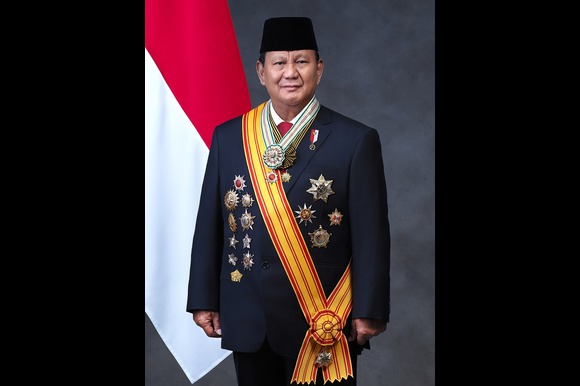JAKARTA — Indonesia has begun releasing hundreds of inmates, including individuals convicted of political offences, following parliamentary approval of the initial phase of President Prabowo Subianto’s ambitious clemency initiative, which is reportedly intended to foster national unity and reconciliation.
The first group of 1,178 prisoners was scheduled for release on Friday, after Law Minister Supratman Andi Agtas and Deputy Speaker of the House of Representatives Sufmi Dasco Ahmad announced late Thursday that President Subianto had officially signed a Presidential Decree authorising the pardons.
Subianto, who assumed office in October, stunned the nation just two months into his term when he proposed granting clemency to approximately 44,000 inmates across the country—most of them jailed for political reasons—as a gesture aimed at promoting social cohesion. The former general, who is also the son-in-law of the late authoritarian leader Soeharto, has framed the sweeping clemency as a step toward healing old political divisions and reinforcing national solidarity.
Law Minister Agtas said that the clemency prioritizes political prisoners, inmates suffering from mental illness or chronic health conditions, the elderly, juveniles, and individuals convicted of blasphemy or for insulting the nation’s leadership.
Among those released on Friday was Hasto Kristiyanto, the secretary-general of the Indonesian Democratic Party of Struggle (PDI-P), the nation’s only formal opposition party. Kristiyanto, a vocal critic of former President Joko Widodo despite once being politically aligned with him, was convicted just last week on bribery charges related to a 2019 legislative seat allocation scandal. He was sentenced to three and a half years in prison and had been detained since February at the anti-Corruption Commission’s facility in South Jakarta.
Emerging from detention to a crowd of cheering supporters on Friday evening, Kristiyanto said, “We must learn from this incident,” signaling a desire to move forward after what many of his allies saw as politically motivated charges.
Also benefiting from the presidential decree was Tom Lembong, former Trade Minister and another ex-ally of President Widodo who broke ranks during the 2024 presidential election to back rival candidate Anies Baswedan. Lembong had been sentenced in July to over four years in prison for allegedly abusing ministerial authority by improperly authorizing sugar import permits.
“Both [Kristiyanto and Lembong] have demonstrated service to the nation, and our priority now is to strengthen the unity of the nation,” Agtas said, underlining the clemency program’s broader political and social goals.
In a significant gesture toward resolving long-standing separatist tensions, six West Papuan independence activists serving sentences for treason were also among those released. The region has seen decades of conflict, and their release may be viewed as a goodwill measure toward addressing grievances in Indonesia’s restive eastern provinces.
Looking ahead, Agtas confirmed that the government plans to submit a second list of 1,668 inmates eligible for clemency to the House of Representatives for approval in the near future, signaling that this is just the beginning of a larger effort.
While the clemency program has drawn praise from some quarters as a bold step toward national healing, critics have expressed concern over the inclusion of high-profile political figures and former officials, fearing it may undermine public trust in anti-corruption and judicial institutions. Nonetheless, Subianto appears intent on reshaping the national narrative and building a broad coalition of support as he begins his presidency.






